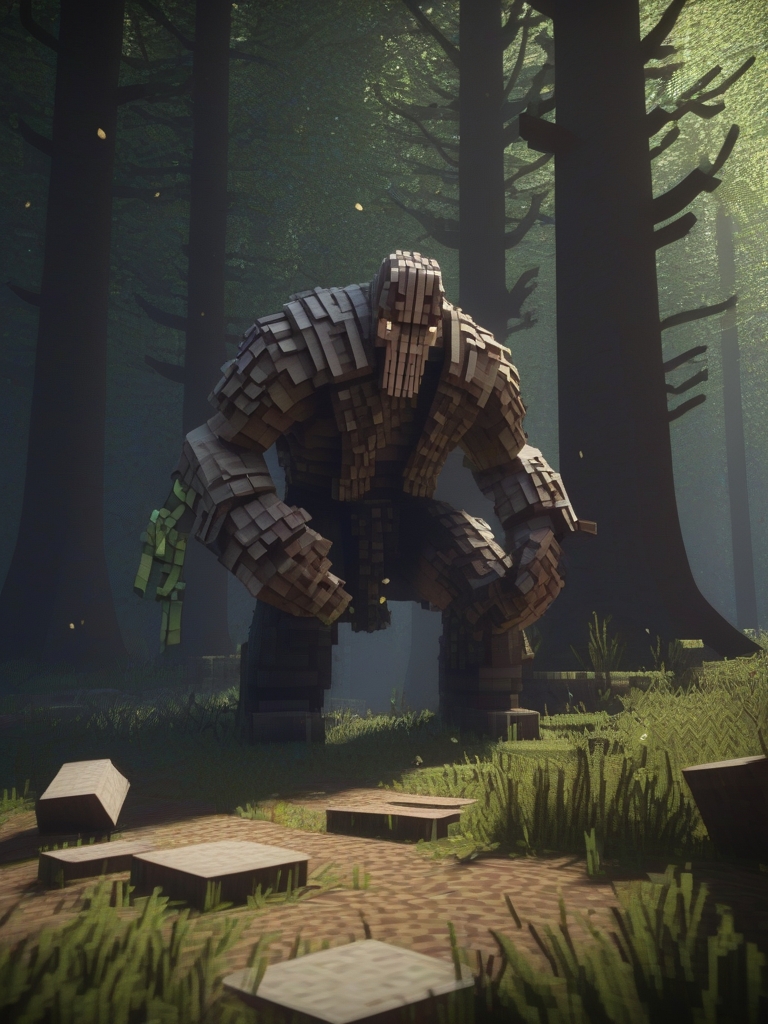Once upon a time, as such tales invariably begin, the Birchwood was a place of whispered leaves and dappled sunlight, where sprites danced and foxes held court in their own sly way. It was a forest where shadows played at being solid and where the wind carried stories worth hearing. But then, as is often the case in stories of woods and men, something changed.
It began subtly—a sourness in the sap, a discord in the birdcalls, a harshness in the rasp of bark. The creatures of Birchwood became shadows of themselves, twisted and cruel, their eyes alight with a vicious gleish. It was said a curse had fallen—a Bane upon Birchwood, seeping darkness into the roots and turning friend to foe.
Into this tale step three unlikely heroes, if heroes they could indeed be called. There was Mirella, the cartographer’s daughter, who could read the land and skies as others read books; Tomkin, a minstud with a fiddle whose music could charm beast or man; and sturdy Hobb, a woodsman who spoke less than he knew, his axe always ready and sharp.
Armed with little but their own resolve, they met under the last blooming elderberry tree at the forest’s edge, where the air was still sweet and the grass underfoot still soft.
“Hear it?” Tomkin murmured as he plucked a mournful note on his fiddle, his brow furrowed.
“The silence beneath the sounds,” Mirella whispered back, her gaze tracking the unnatural stillness that had fallen like a pall over the once vibrant underbrush.
“Aye, and worse,” grunted Hobb, eyes dark with the memory of brighter days.
So it was decided, without further ado, for there was nothing much to decide but everything to attempt, that they would venture into the wounded heart of Birchwood to seek the source of the Bane and, with luck less fickle than fairies, put an end to it.
Into the woods they went, where the bracken was thick and the air grew progressively fouled, a miasma of decay and anger. Creatures with gnarled teeth and soured hearts stalked them, slinking between twisted trees—once majestic oaks and elms, now gnarled and stooping. They wandered deep and deeper, with only Mirella’s compass and the stars hidden behind a veil of malevolence to guide them.
As they pressed on, Tomkin played his fiddle, notes quivering like dragonfly wings against the thick oppressiveness, a beacon of gentle defiance. Where music flowed, the foliage seemed less hostile, allowing them passage, opening like a curtain before actors on a stage.
Days melded into nights, and the tales whispered by the winds spoke of an old sorrows embedded in the soil itself. Somewhere beneath them, they knew lay the heart they sought—the weeping core of the Bane, though what form it took remained cloaked in mystery.
Then, at last, amidst an ancient clearing encircled by silver birch trees, they found it. A stone, dark as a starless night, pulsing with a palpable malaise. Around it, the air throbbed with the pain of the curse, a wound in the very earth itself.
It was Hobb who, with a solemn nod, lifted his axe. With each strike, a shudder passed through the grove, a groan through the very roots of Birchwood. But as the axe fell, Tomkin played, weaving a counter-spell in old melodies, notes fluttering around each stroke. Mirella sketched quick, sharp symbols in the dirt, encircling the stone with ancient sigils of binding and healing.
The air quaked, the darkness shrieked, and then—a hush. The stone cracked, a fracture glowing, not with darkness now, but with a brilliant, piercing light—a cleansed heart unburdened.
In the wake of that light, Birchwood breathed. The curse lifted like mist at morning’s first touch. Birds, their music forgotten, slowly began to sing anew. Creatures blinked as if awakening from a nightmare, their malignance washed away in the newly pure air.
The three heroes, our unlikely trio, stood still a moment longer, watching the rebirth of a place they had known as both threat and sanctuary. There would be tales told of them, songs sung. But in that clearing, a gentle peace settling like dew around them, they felt only the silent, sacred victory of a home restored, an equilibrium returned.
And so, as tales of woods and men often end, the Birchwood was once again a place of whispered leaves and stories worth hearing. The curse was broken, not by might nor by magic alone, but by a union of both, and the enduring courage of friends.
